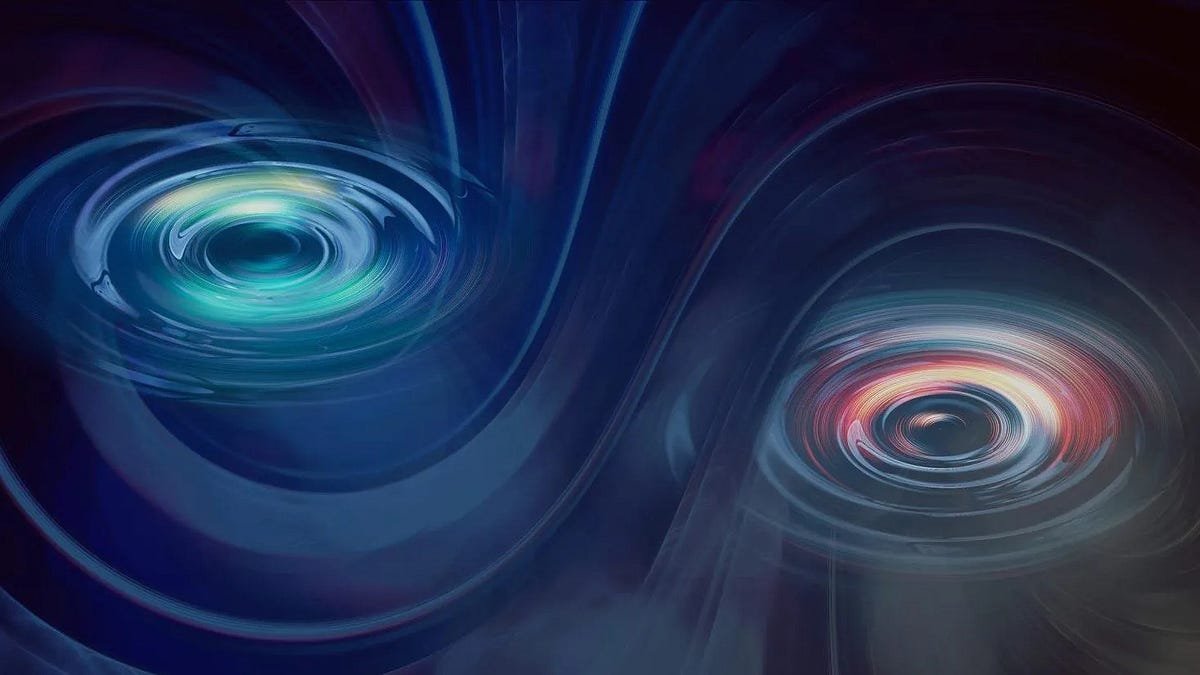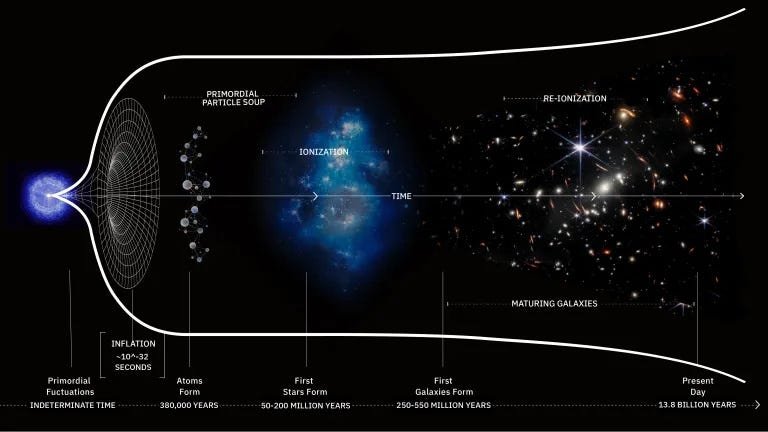
Claims that “the Universe will end sooner than expected” are false | by Ethan Siegel | Starts With A Bang! | May, 2025
If all massive objects emit Hawking radiation, not just black holes alone, then everything is unstable, even the Universe. Can that be true?
Here in our Universe, a common refrain is that, “this, too, shall pass.” Our night sky is alight with a vast array of planets, stars, and galaxies: indicative of the complex structures that have formed through the relentless effects of gravitation over the past 13.8 billion years. Although quintillions of new stars will no doubt form within our observable Universe far into the future, our Universe is already past its prime in a significant number of ways. Most of the stars that will ever form have already formed, as star-formation only occurs at 3% of the rate it once possessed 11 billion years ago: at its peak. Many planets will be swallowed or ejected as their parent stars evolve, and all of the stars that now exist will someday become stellar corpses: white dwarfs (which will someday fade to black), neutron stars, and black holes.
However, it’s long been known — since as far back as 1974 — that black holes won’t persist forever. Instead, due to the intricacies of quantum field theories in curved spacetime, black holes will emit a very real form of energetic radiation…




